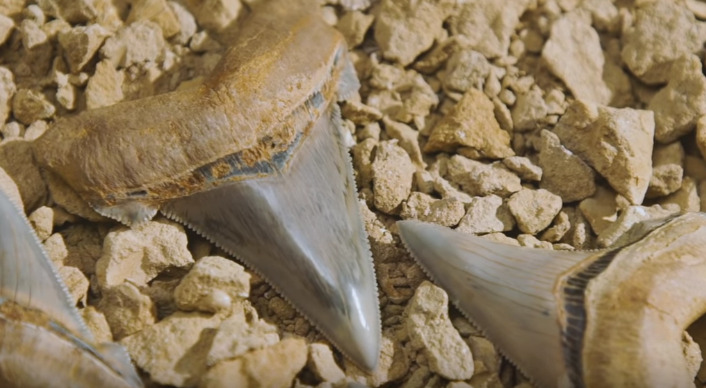Giant Shark Teeth Found Near Dinosaur Cove, Australia
Australians understand living among animals – they've got more than their fair share of wild creatures across the continent. But when it comes to giant shark teeth, there's not exactly one big abundance. A schoolteacher from Victoria by the name of Philip Mullaly was on a fossil hunt in a region called Dinosaur Cove when he happened upon a rare find.
Down in the rocks at his feet, Mullaly said he saw what appeared to be a "shiny blade." The blade was no blade at all, but a gigantic tooth. Amid the tooth and the rocks were a set of teeth, all from a single ancient shark. This would be the first of said type of creature found on the continent in recorded history.

A Museums Victoria press statement included a more specific location for the find. There at Jan Juc, near the Great Ocean Road, just 60 miles (100 kilometers) from Melbourne, the teeth were found. "These teeth are of international significance, as they represent one of just three associated groupings of Carcharocles angustidens teeth in the world," said Erich Fitzgerald, senior curator of vertebrate paleontology at Museums Victoria, "and the very first set to ever be discovered in Australia."
These teeth belonged to the creature known as the great jagged narrow-toothed shark (Carcharocles angustidens). Once located and reported to Museums Victoria, a crew went back out to further investigate. Two expeditions later and they've found a whopping 40 shark teeth in the immediate area, the vast majority of which came likely from the same shark. Teeth from the sixgill shark (Heanchus) were also discovered in the rocks.

Once the teeth are dated, we'll know whether the sixgill teeth were lost there at the same time as the more massive shark. If the sixgill teeth are as old as the larger shark, there's a good chance said sharks will have been living in the area for quite a while.
"Sixgill sharks still exist off the Victorian coast today, where they live off the remains of whales and other animals," said Museums Victoria paleontologist Tim Ziegler. "This find suggests they have performed that lifestyle here for tens of millions of years."
Above you'll find a lovely video presented by Museums Victoria on the find of the teeth. This video was created by Museums Victoria for the public. Good on you, Museums Victoria.
